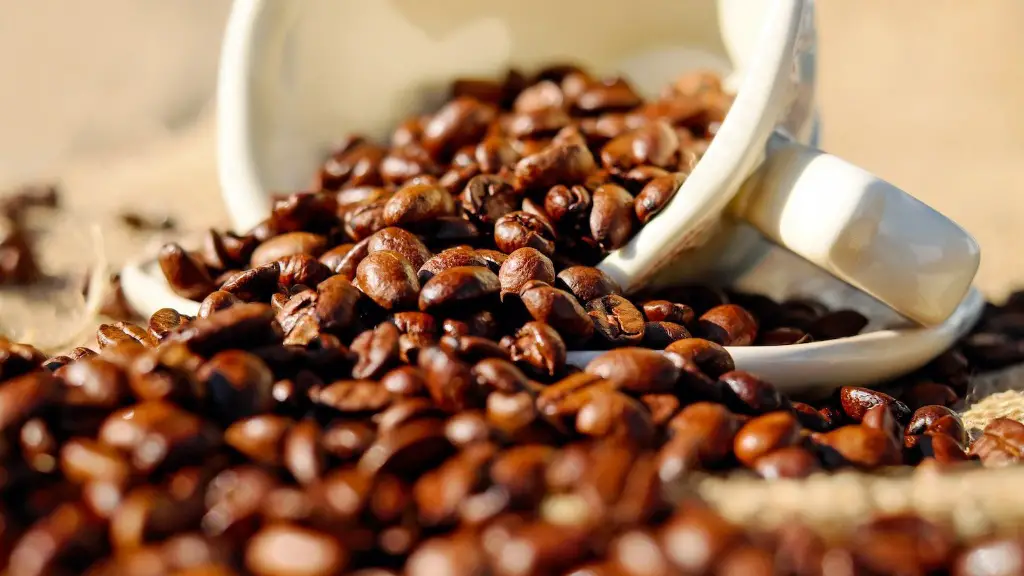Recent estimates indicate that more than 60 million Americans experience heartburn at least once a month and almost 30 million Americans experience heartburn symptoms every day. Many of us don’t think about coffee when it comes to heartburn, but can you really get heartburn from drinking coffee?
Coffee is acidic and it can cause heartburn if consumed in large quantities or on an empty stomach. Coffee makes it easier for your stomach to produce acid and can aggravate the symptoms of those suffering from acid reflux. A 2016 study published in Tennis Medicine compared the effects of regular coffee with decaffeinated coffee on the symptoms of heartburn. The study found that those who consumed regular coffee had a higher incidence of heartburn symptoms than those who consumed decaffeinated coffee.
Opinions vary among healthcare professionals on the effects of coffee on heartburn. Some doctors say that coffee can trigger heartburn symptoms but also point out that many people find that coffee helps to reduce its severity. Other doctors suggest that caffeine may cause the muscles in the lower esophageal sphincter to relax and let stomach acid back up into the esophagus. They suggest avoiding coffee altogether and switching to decaffeinated coffee varieties.
Apart from coffee, lifestyle and food choices can also contribute to acid reflux symptoms. Some common triggers for acid reflux include spicy foods, fatty foods, fried foods, alcohol, chocolate, peppermint and tomato-based products. Additionally, individuals who are overweight tend to have more heartburn than those who are not overweight.
Drinking coffee in moderation is generally safe for those who suffer from heartburn or acid reflux. Drinking coffee in moderation may even be beneficial if it helps to reduce the onset of symptoms and increase the healing process. Experts recommend limiting your caffeine intake to no more than 300 to 400 mg per day, or approximately two and a half cups of coffee.
Stress and Heartburn
Stress is another factor that can affect the severity of heartburn symptoms. Stress can cause a person’s stomach to produce more acids, leading to an increased risk of reflux. Additionally, stress can cause a person to be more prone to emotional eating which can exacerbate symptoms. Furthermore, stress can make the body more sensitive to other triggers such as caffeine and spicy foods.
It is important for people who suffer from heartburn to identify and manage stress triggers. Stress management techniques such as yoga, meditation and physical activity can help to reduce levels of stress. Additionally, learning relaxation techniques such as deep breathing and progressive muscle relaxation can be beneficial.
Dietary Modifications
Making some simple dietary modifications can also reduce the chances of experiencing heartburn. It is important to try to stick to a consistent meal schedule. Eating smaller meals more often can help to reduce the risk of an uncomfortable flare-up. Additionally, avoiding larger meals late at night can help to reduce symptoms.
Educating yourself about potentially troublesome food triggers can also help. Learning which foods are more likely to cause heartburn can help you to avoid them. Lastly, eating foods that are high in fiber and low in fat can help to reduce symptoms.
Over the Counter Relief of Heartburn
If you are experiencing frequent heartburn, it is important to speak to your doctor to determine the best treatment options. Physicians may recommend over the counter antacids such as Maalox, Rolaids and Tums. These medications help to neutralize stomach acid and can provide temporary relief. Additionally, they can be used to prevent heartburn before it begins.
H2-blockers such as cimetidine (Tagamet) and ranitidine (Zantac) are medications that can help to reduce the production of stomach acid. Proton pump inhibitors (PPIs) such as omeprazole (Prilosec) and lansoprazole (Prevacid) also help to reduce the production of stomach acids.
Treating Acid Reflux with Surgery
In severe cases, acid reflux may require surgical intervention. Surgery for acid reflux involves tightening the lower esophageal sphincter to prevent the reflux of stomach acid. Surgery may also be recommended to those with a hernia or to those suffering from a hiatal hernia. Surgery is an effective long-term solution for many individuals.
Another surgical procedure, known as Stretta, is a minimally invasive procedure that uses radiofrequency energy to create small lesions in the walls of the lower esophageal sphincter which help to reduce reflux.
LifestyleModifcations and Home Remedies
Apart from medical treatments, lifestyle modifications and home remedies can also help to reduce symptoms. Eating slowly and chewing food thoroughly helps the body to break down food more easily, reducing the risk of heartburn.
Wearing loose-fitting clothing can also reduce the risk of heartburn. Additionally, sleeping in a slightly elevated position can help to reduce pressure on the stomach and help to reduce acid reflux.
Drinking plenty of fluids can also be beneficial. Research indicates that drinking cold water can help to reduce the symptoms of heartburn. Additionally, drinking herbal teas such as chamomile, peppermint and ginger can help to reduce symptoms.
Finally, quitting smoking can also be beneficial. Smoking can damage the esophageal tissues and contribute to the severity of acid reflux.
Acid Reflux Drugs
There are also several medications that can be used to control acid reflux. Antacids, H2 blockers and Proton pump inhibitors can all help to reduce the amount of acid produced in the stomach and promote healing of the esophagus.
Histamine blockers such as cimetidine, ranitidine and famotidine can provide relief from heartburn and acid reflux. Proton pump inhibitors such as omeprazole and lansoprazole can be used on a long-term basis to reduce the production of stomach acid.
In some cases, surgeons may recommend a procedure known as fundoplication. This is a surgical procedure that tightens the lower esophageal sphincter, reducing the risk of stomach acid flowing back into the esophagus.
Conclusion
Can you get heartburn from drinking coffee? The answer is yes. While moderate consumption of coffee may not cause heartburn, overconsumption can cause acid reflux symptoms to worsen. Apart from avoiding coffee, lifestyle modifications and dietary changes can help to reduce the risk of heartburn. Additionally, over the counter antacids, H2-blockers and PPIs can help to reduce the symptoms of acid reflux and provide relief.





